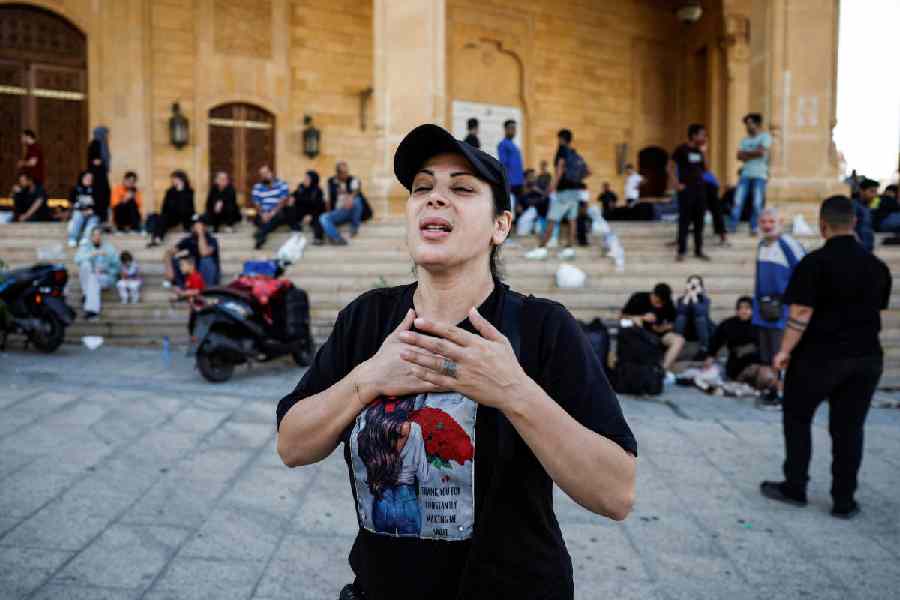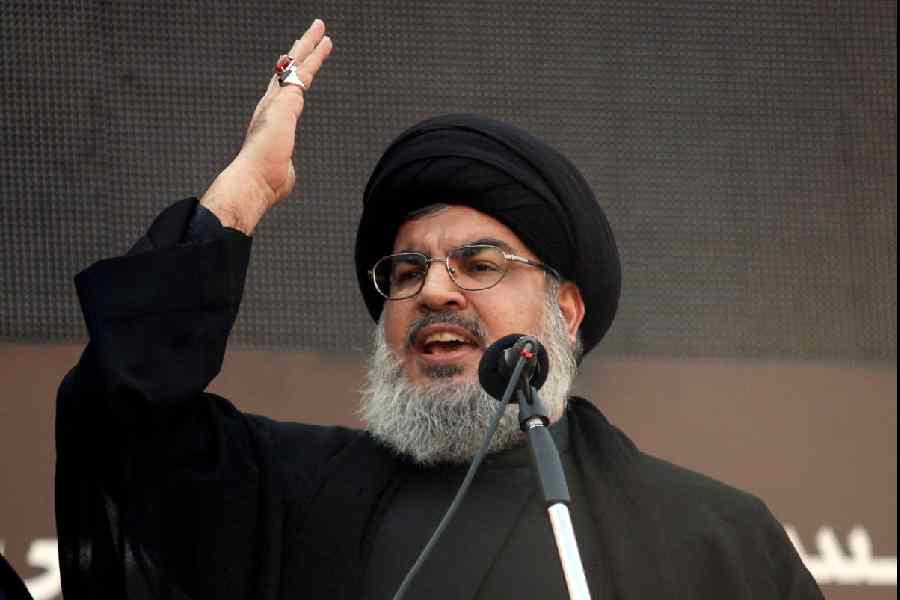Israel said on Saturday it had killed Hezbollah leader Sayyed Hassan Nasrallah in an airstrike in Beirut’s southern suburbs a day earlier, in what would be a devastating blow to the group as it reels from an escalating campaign of Israeli attacks.
Hours later, Hezbollah confirmed the death of Nasrallah, its leader for 32 years.
Nasrallah’s death marks a major blow not only to Hezbollah but also its backers in Iran. He has long been a leading figure in the Tehran-backed “Axis of Resistance”, helping to project Iranian influence across West Asia.
The Israeli military said in a statement that Nasrallah was eliminated in a “targeted strike” on the group’s underground headquarters under a residential building in Dahiyeh — a Hezbollah-controlled southern suburb of Beirut.
It said he was killed along with another top Hezbollah leader — Ali Karaki — and other commanders.
“The strike was conducted while Hezbollah’s senior chain of command was operating from the headquarters and advancing terrorist activities against the citizens of the State of Israel,” it said.
Friday’s airstrike on Dahiyeh shook Beirut. A security source in Lebanon said the attack — a quick succession of massively powerful blasts — had left a crater at least 20 metres deep.
The attack, followed on Saturday by further airstrikes on Dahiyeh and other parts of Lebanon, has escalated the conflict between Israel and Hezbollah.
“Nobody has any idea what to do,” said Zakiya Khattab, 67, who fled the Dahiya and spent the night in Beirut’s central Martyrs’ Square. “We would love to go back but we can’t. It’s not safe.”
The escalation has sharply increased fears the conflict could spin out of control, potentially drawing in Iran as well as the US.

A woman reacts, among other displaced people, following the announcement of the death of Lebanon's Hezbollah leader Sayyed Hassan Nasrallah, in Beirut, Lebanon September 28, 2024. Reuters
In central Beirut, Lebanese army tanks were deployed near the Burj Al Ghazal bridge late on Saturday afternoon in anticipation of possible clashes in the wake of Nasrallah’s death. The bridge divides a Shia neighbourhood, Khandaa Al-Ghami, and a Christian neighbourhood, Achrafieh. Protests have previously broken out between residents on either side.
Ayatollah Ali Khamenei, Iran’s supreme leader, had condemned the Israeli strikes in a statement earlier on Saturday but did not mention Nasrallah.
“All the resistance forces in the region stand withand support Hezbollah,” he said.
Iran casualty
A prominent general in Iran’s paramilitary Revolutionary Guard died in an Israeli airstrike that killed Nasrallah in Beirut, Iranian media reported on Saturday.
The killing of Gen. Abbas Nilforushan marks the latest casualty suffered by Iran in the nearly year-long Israel-Hamas war in the Gaza Strip. His death further ratchets up pressure on Iran to respond, even as Tehran has signalled in recent months that it wants to negotiate with the West over sanctions crushing its economy.
Nilforushan, 58, was killed on Friday in the strike in Lebanon that killed Nasrallah, the state-owned Tehran Times reported. Ahmad Reza Pour Khaghan, the deputy head of Iran’s judiciary, also confirmed Nilforushan’s death, describing him as a “guest to the people of Lebanon”, the state-run IRNA news agency said.
Khaghan also reportedly said that Iran had the right to retaliate under international law.
Reuters, AP/PTI and New York Times News Service










